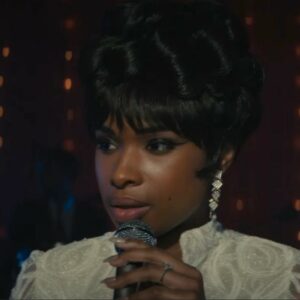Ryan Gosling, a name that has become synonymous with talent, versatility, and authenticity, stands as one of the most celebrated figures in modern Hollywood. His career has spanned multiple genres, from romantic dramas to intense thrillers, and has seen him evolve from a child star to a respected actor, producer, and musician. Yet, despite his success and the many accolades he has earned over the years, what truly defines Gosling is his unwavering belief in living authentically and without self-imposed limits.
A quote from Gosling himself encapsulates the essence of his life philosophy: “I’ve learned it’s important not to limit yourself. You can do whatever you really love to do, no matter what it is.” This mantra—rejecting boundaries and embracing the full spectrum of one’s passions—has guided his journey, both personally and professionally. As we delve deeper into the life and career of Ryan Gosling, we’ll explore how this guiding philosophy has shaped his choices and how we can all benefit from his example.
The Power of Not Limiting Yourself
Ryan Gosling’s career is the epitome of not limiting oneself. It’s a narrative that begins in his childhood and continues to unfold today. His earliest break came when he was just 12 years old, as part of the famous The Mickey Mouse Club, alongside other future stars like Justin Timberlake, Britney Spears, and Christina Aguilera. This early exposure to the entertainment industry could have easily pigeonholed him into a particular kind of career trajectory—perhaps one focused solely on the world of TV and film. But Gosling’s story is not one of limitations.
As a young actor, Gosling sought out roles that were both eclectic and challenging, never allowing himself to be typecast. His breakout performance in The Notebook (2004) certainly cemented his place as one of Hollywood’s leading men, yet it was far from the end of his journey. He refused to limit himself to just romantic dramas or heartthrob roles. Instead, Gosling embraced diverse projects that ranged from the gritty Half Nelson (2006), where he portrayed a high school teacher struggling with addiction, to Drive (2011), a film where his stoic portrayal of a stunt driver earned him international recognition. Gosling’s refusal to be confined to one genre speaks to his desire to expand his horizons, to stretch the boundaries of what he can do as an artist.
His career is marked by a refusal to box himself into a single category. It’s not just about acting—Gosling has proven himself in many different creative fields. He ventured into music with the band Dead Man’s Bones, a project that allowed him to express himself through another medium, and more recently, he has stepped behind the camera as a director with Lost River (2014), a film that received mixed reviews but still showcased his willingness to challenge traditional career paths. Each of these moves reflects Gosling’s core belief: that the only limits to one’s potential are the ones we impose on ourselves.
Pursuing Passion Over Perfection
One of the key components of Gosling’s approach to life and career is his focus on passion rather than perfection. This is evident not just in his choice of projects, but also in his refusal to chase after the perfect career, one that follows a neat, predictable path. He has often expressed that his journey is less about meticulously sculpting a perfect image and more about pursuing the things he loves, even if they don’t fit neatly into the world’s expectations.
Take, for example, his decision to dive into music. While many actors may shy away from pursuing a music career due to the high risk of failure or being scrutinized for not being “good enough,” Gosling embraced it wholeheartedly. Dead Man’s Bones is a testament to his willingness to create and experiment in a field that was outside of his established film persona. Instead of obsessing over technical skill or public perception, Gosling followed his passion, creating a unique album that blended haunting melodies with heartfelt lyrics. The music wasn’t about achieving perfection—it was about creating something that was authentic to him.
Gosling’s willingness to embrace imperfection in his art, his career, and his personal pursuits is a powerful lesson. It underscores the idea that passion and fulfillment come not from trying to meet an external standard of success but from staying true to one’s own voice and interests. In his case, this approach has led to some of his most memorable and compelling work—whether in front of the camera, behind the mic, or at the director’s chair. His career isn’t about being the best at everything; it’s about finding what he loves and doing it with honesty and sincerity.
Breaking Free from Societal Expectations
In a world where the expectations placed on actors, celebrities, and public figures can be suffocating, Gosling stands as an example of someone who refuses to conform. Hollywood, in particular, is infamous for its focus on fame, image, and commercial success. For many actors, the desire to “make it” often leads to decisions that prioritize public approval over personal fulfillment. Gosling, however, has always taken a different approach, often eschewing the traditional path in favor of more unconventional career choices.
For example, when he was offered roles in mainstream films that could have further cemented his place as a leading man in Hollywood, Gosling often turned them down in favor of smaller, more independent projects that allowed him to stretch his artistic muscles. His decision to work with auteur directors such as Nicolas Winding Refn on Drive or Terrence Malick on Song to Song (2017) shows his disregard for the typical Hollywood formula, and his ability to create his own path outside of the industry’s expectations.
His foray into directing with Lost River was yet another example of him stepping outside of the traditional confines of his public persona. Rather than continuing to follow the formulaic path of an actor who builds his brand around blockbuster films, Gosling chose to explore a different creative space. The film, though polarizing, was a bold move that showed his willingness to challenge conventional ideas of what a “successful” actor should do. In doing so, Gosling broke free from the societal expectations that often limit celebrities and creative individuals, and instead chose to create something that was entirely his own.
Gosling’s career choices remind us that we do not need to adhere to a prescribed narrative in order to be successful. In a society that often values conformity and stability, Gosling encourages us to break free from these expectations and pursue what truly excites us, even if it means stepping outside of what is considered “normal.”
The Influence of Resilience and Persistence
While Ryan Gosling’s career is marked by success, it is also marked by persistence, resilience, and a refusal to give up. His journey hasn’t always been smooth, and like many actors, he has faced setbacks and rejections. However, rather than allowing these challenges to define him, Gosling has used them as fuel to propel himself forward.
One of the most telling examples of his resilience is the story behind his casting in The Notebook. Gosling was initially dismissed as being too “rough” for the role of Noah, a part that was initially envisioned for someone more polished. The studio’s doubts about his suitability for the role could have been a setback, but Gosling didn’t let it derail him. Instead, he took the criticism in stride, committed to the character, and ultimately delivered a performance that made The Notebook one of the most beloved romantic films of all time.
Persistence has also played a role in his music career. When Dead Man’s Bones was first introduced, there was skepticism and doubt from critics who questioned the sincerity of an actor dabbling in music. But Gosling’s unwavering commitment to the project—his belief in the music he was creating—allowed him to push past the criticism and see the project through. This kind of persistence in the face of adversity is a key lesson that can be applied to any area of life.
Gosling’s resilience serves as a reminder that success is often not about the absence of failure, but about the willingness to keep going despite it. It’s about learning from mistakes, improving, and not being discouraged by setbacks. His career has been a testament to the power of persistence and the importance of continuing to push forward, even when the odds seem stacked against you.
A Lesson in Self-Discovery and Fulfillment
At the core of Ryan Gosling’s philosophy is the idea that life should be about self-discovery and fulfillment. His journey is one that encourages us all to follow our passions, to explore different avenues, and to remain open to the possibility of growth and change. Gosling’s refusal to limit himself is an invitation to embrace the process of discovering who we truly are and what we are meant to do in this world.
It’s easy to fall into the trap of thinking that our passions must align with societal expectations or conventional career paths. But Gosling’s life and career demonstrate that true fulfillment comes from following your own path, even if it’s not the one others expect of you. Gosling’s success is not just about fame or wealth—it’s about living authentically, staying true to your passions, and having the courage to keep pushing forward.
Conclusion
Ryan Gosling’s career and life philosophy offer us a powerful lesson: we are not defined by the limits others place on us, nor by the boundaries we place on ourselves. His journey as an actor, musician, and director shows us that it is possible to live authentically, pursue our passions, and break free from societal expectations. Gosling’s quote, “I’ve learned it’s important not to limit yourself,” serves as a reminder that the only thing standing between us and our dreams is the belief that we cannot achieve them.





